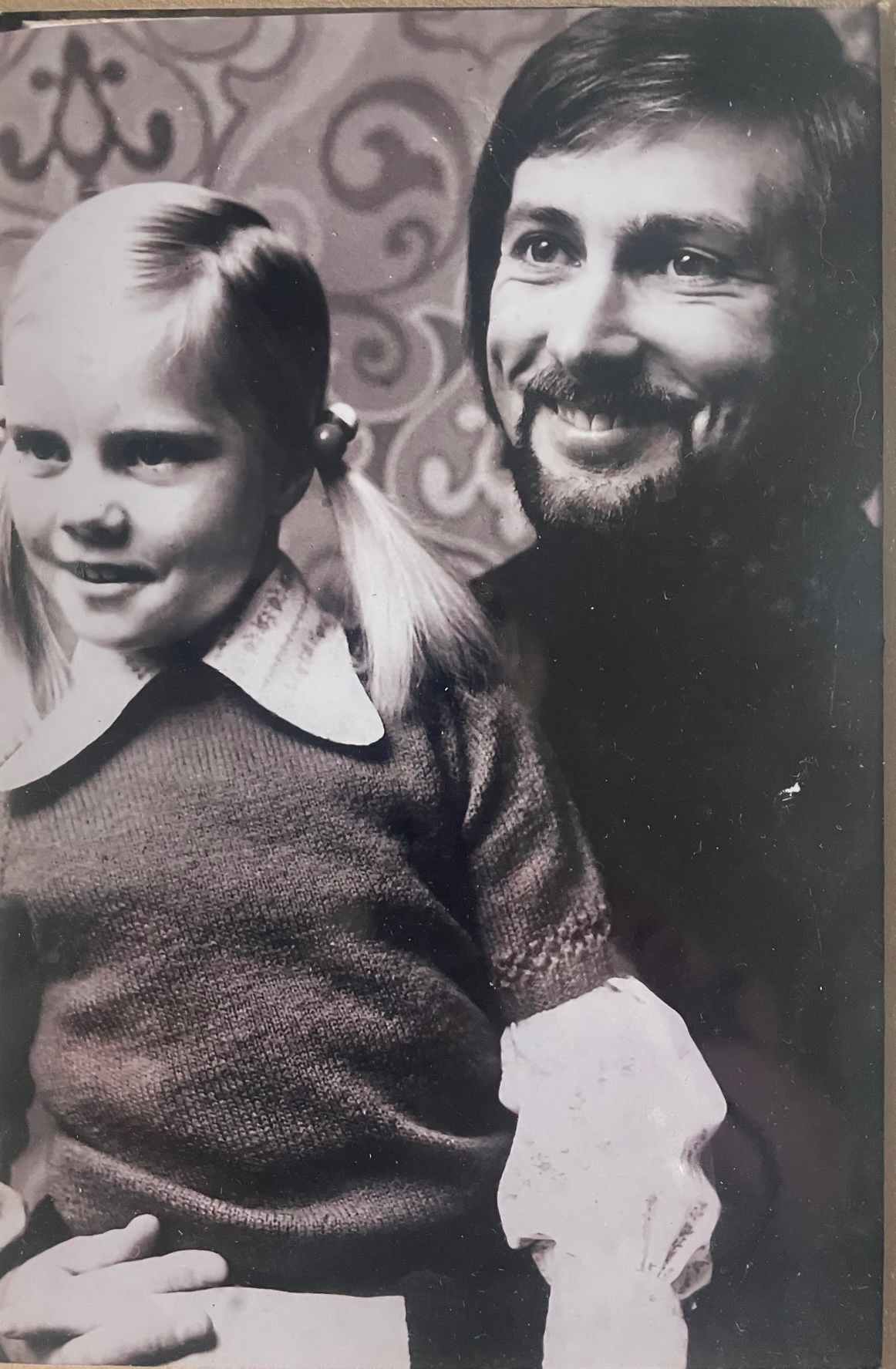Children don't just bounce back
by Claire McGonigle
On Grand National Day in 1975 my world was shattered. Sitting at the top of the stairs, arms around both dogs, I listened as my Mum described the clothes my Dad had been wearing that day. That’s when I knew he wasn’t coming home. I was 8 years old.
Dad had simply been in the wrong place at the wrong time and had been killed in an IRA explosion. He was 29 years old. 
My grief was compounded by guilt. My last words to my Dad had been in anger. He normally took me with him when he played football, but on this day, I wasn’t allowed to go. My reaction was to stomp off in a mood. I didn’t say goodbye.
I watched my Mum struggle with her own grief, and I grieved also for her and the loss of our family unit. My 8 year old self was angry at the world. Why us? My adult-self response is– Why not us? No one is special, no one is immune to loss; it’s just a case of circumstance and timing.
The world has changed enormously in the past few decades. In the 1970s, children were “resilient”, children “bounced back”, children were “stronger than you think”. At least that’s what people told themselves, because it was easier to believe than deal with the reality.
I was back at school a week later. No-one knew what to say or do, so they just avoided speaking to me about my loss. I can understand that from a class of 8 year old kids, but adults? Nothing – because it made them feel uncomfortable. I was expected to just get on with it, and that’s what I did.
That day has never left me. My grief is a constant. It lurks just below the surface and rears its head when triggered by particular events. You feel the loss when you hit key milestones – turning 18, graduating, marriage, the birth of your own kids. On my 29th birthday all I could think was that for my Dad, that was it. Life over, and it felt like it had hardly started. I particularly struggle with reports of violence and terrorism at home and abroad. I feel the people’s grief, the immense desolation felt at a loved one lost, the tragic waste of life – for what? Oh there will always be some argument, some justification by the warring sides but, I struggle with the world’s lack of humanity.
As I look back at my younger self, I can see now how grief has shaped my thinking and ironically, in a positive way.
- I don’t worry about things that I can’t control. I remember a friend commenting that when her son started to drive, she couldn’t sleep at night until he came home. My response was -Why? You being awake changes nothing, worrying changes nothing. Go to sleep. The knock on the door may never come and if it does, deal with it then.
- When a loved one dies, I celebrate their life. I’m grateful for having had them in my life, no matter how long or short the time. It’s a chapter, with memories to be cherished and enjoyed. But, you must turn to the next chapter and move on. The previous chapter will always be there.
- I’m not afraid to talk about death, to have conversations with people who have been bereaved. There is no elephant in my room. We need to talk more openly about death.
- I don’t huff and I don’t go to bed angry with a loved one. I’m happy to say my piece, agree to disagree if necessary, and move on. Life is far too short to waste on holding grudges.
Don’t get me wrong – the loss has influenced my personality in ways that have challenged me. But, that’s for another day.
One thing that is crucially important, especially for bereaved children, is that they receive counselling. It was never an option for me back in the dark ages of the 1970s. But, it is now. It can make a huge difference to how those children go on to live their lives. Children do not just “bounce back”.
In closing, I’ll steal the words from Nick Cave, as he so eloquently describes grief.
“Grief is tidal. In time, it can recede and leave us with feelings of peace and advancement, only for it to wash back in with all its crushing hopelessness and sorrow. Back and forth it goes, but with each retreating drift of despair, we are left a little stronger, more resilient, more essential and better at our new life.”

